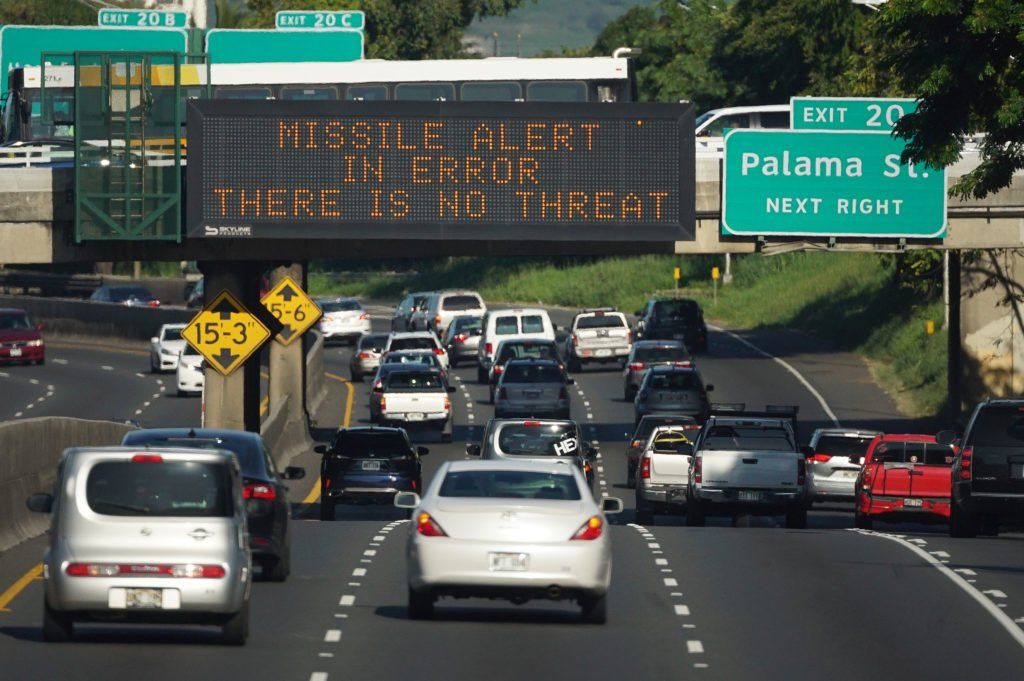On the morning of Jan. 13, 2018, James Sean Shields and Brenda Reichel were on their way to Sandy Beach when they, like thousands of other Hawaiʻi residents, got an emergency alert on their cell phones.
“BALLISTIC MISSILE THREAT INBOUND TO HAWAII. SEEK IMMEDIATE SHELTER. THIS IS NOT A DRILL.”
The infamous alert turned out to be false, of course. But by the time state officials sent out the all clear — anywhere from about about 15 minutes to 40 minutes later depending on whether it was on social media or your cell phone — Shields was in the throes of heart failure. The chest pains had started as soon as he’d texted his son and daughter on the mainland to tell them he loved them, a lawsuit filed against the state in 2018 says.
An alert that missiles were headed our way sent thousands of Hawaiʻi residents into a panic on Jan. 13, 2018, before officials finally got the word out that it was false. (Cory Lum/Civil Beat/2018)
“Both (Shields and Reichel) believed this message to be true and were extremely frightened and thought they were shortly going to die,” the complaint said. “They decided there was not much they could do to protect themselves from this threat and decided that if they were going to die, they might as well die together on the beach.”
But Shields, 51 at the time, immediately began experiencing burning chest pain. A dip in the water didn’t help. He made it to the hospital where he went into full cardiac arrest. Heart surgery saved his life.
“In my opinion, the warning there was an imminent missile attack about to hit Hawaiʻi was a substantial contributing factor in causing the heart attack and cardiac arrest,” said a cardiologist who served as a medical expert for the plaintiffs.
It turned out the alert was mistakenly sent out by a Hawaiʻi Emergency Management Agency staffer who didn’t hear the word “exercise” when he got a call to send out an alert as part of a drill. The man, who was never publicly identified out of concern for his safety and mainly became known as the “Button Pusher,” was fired.
An investigation into the false alert also showed that the state agency and other government officials were slow to send out the all-clear. Then-Hawaiʻi Gov. David Ige famously admitted he couldn’t send a message on social media because he didn’t know his password. The top state emergency management official also lost his job over the incident.
The Legislature convened in its annual session a few days after the debacle and quickly passed legislation to give federal agencies the power to send out emergency alerts. Hawaiʻi’s congressional delegation picked up the issue and worked to smooth out emergency management processes nationwide.
Shields’ and Reichel’s lawsuit stretched on for seven years and finally settled earlier this year for $275,000, court and legislative records show.
A spokesman for the Hawaiʻi Attorney General’s Office said it is the only claim related to the false missile alert that the state has settled.
The Legislature is considering the $275,000 settlement as part of its annual payment of claims. The House Finance Committee voted to approve House Bill 990 on Tuesday and it moves to a vote of the full House.
A Senate companion bill awaits a hearing in the Ways and Means Committee.
